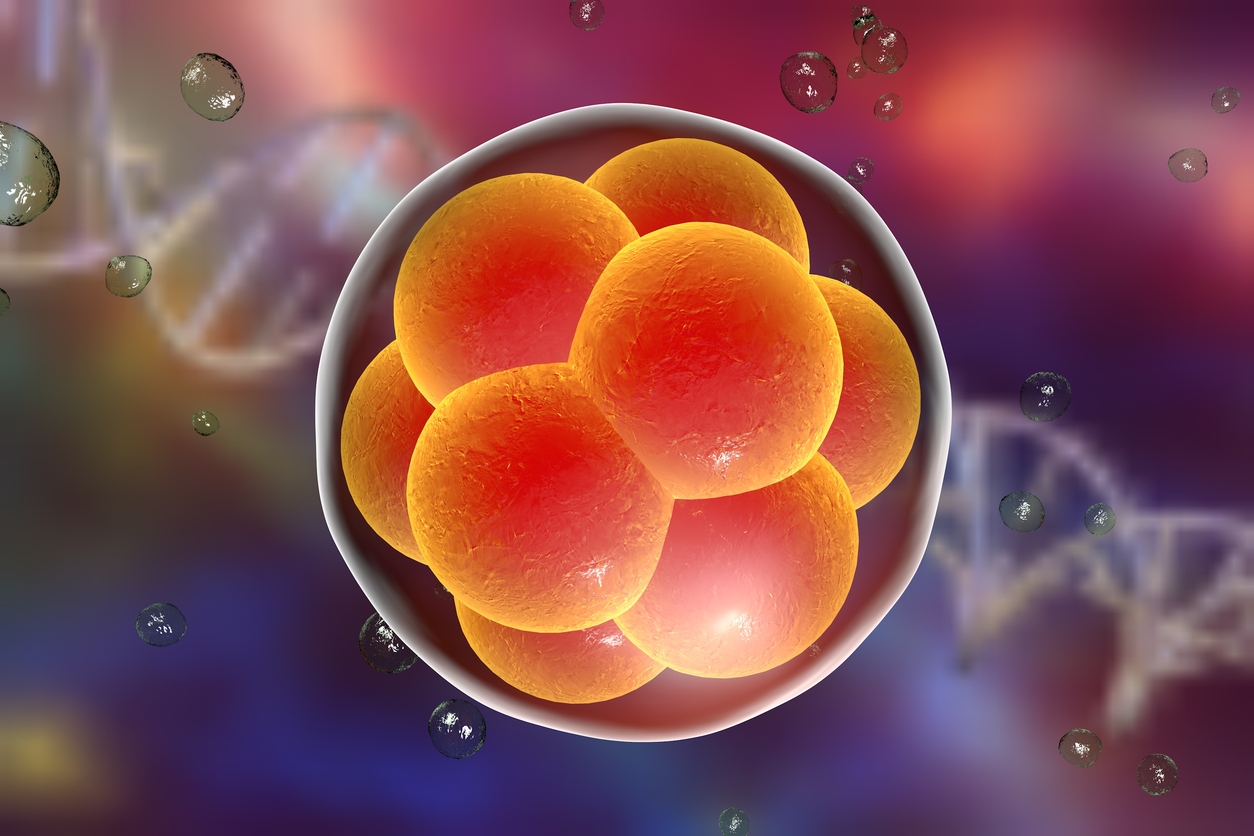The Role of Genetic Testing in IVF
Posted on April 5th, 2022

When it comes to fertility care, the primary goal is to give aspiring parents the best possible chance of having a successful conception, pregnancy, and delivery that results in a healthy child, free of disease and genetic abnormalities. For patients who are undergoing in vitro fertilization (IVF), this can include an advanced fertility care technique known as preimplantation genetic testing (PGT). In many cases, PGT can help identify the healthiest embryos and ultimately increase your chances of having a successful pregnancy.
How Preimplantation Genetic Testing Works
PGT involves removing a small number of cells from an embryo so that it can be screened for genetic abnormalities or conditions. During IVF, eggs are fertilized with sperm; once fertilization has occurred, the resulting zygote develops into an embryo. The embryos are then left to reach the blastocyst stage of embryonic development, which takes about five to six days. At this stage, the embryo consists of an inner cell mass and an outer layer of cells known as the trophectoderm. The inner cell mass will eventually develop into the fetus, while the cells from the trophectoderm will eventually become the placenta. Biopsies are taken from the trophectoderm to predict the future genetic status of the future embryo and pregnancy. This in no way harms the inner cell mass.
There are different types of genetic testing services that are used in different scenarios. When deciding whether or not to undergo PGT as part of your IVF cycle, your fertility specialist will work with you to select the best test that fits your needs.
Preimplantation Genetic Testing for Aneuploidy (PGT-A)
The most common form of embryo testing is preimplantation genetic testing for aneuploidies (PGT-A), also referred to as preimplantation genetic screening (PGS). This test helps determine whether or not an embryo has a normal or abnormal number of chromosomes. In a genetically normal human, there are 46 chromosomes (23 pairs) in nearly every cell in the human body. When there are too many or too few chromosomes, it can cause a wide range of genetic disorders, such as Down Syndrome. Chromosomal abnormalities are one of the most common causes of recurrent pregnancy loss, especially in cases of severe male factor infertility or female patients who are over the age of 35.
In theory, PGT-A is used to screen embryos for the number of chromosomes so fertility specialists can identify embryos with the highest probability of success, thus reducing the risk of miscarriage or having a child with a genetic disorder. Recent research has added complexity to this topic as PGT-A results may sometimes show “false-positive” outcomes. For example, some embryos biopsies may show abnormalities that still could allow an embryo to implant and turn into a healthy child despite an abnormal result. Further research is being done in this area to help pave the way for future patients. Your physician will help you make the best decision for you and your family.
Preimplantation Genetic Testing for Monogenetic Disorders (PGT-M)
Preimplantation genetic testing for monogenetic disorders (PGT-M), also referred to as preimplantation genetic diagnosis (PGD), is a type of genetic screening used to confirm whether a specific inheritable condition is present within a patient’s embryos. PGT-M is typically recommended in cases where one or both partners have a known history of genetic conditions in their families. PGD can test for autosomal recessive disorders (cystic fibrosis, Tay-Sachs disease, etc.), X-linked diseases (hemophilia A and B, Fragile X syndrome, etc.), and dominant disorders (Huntingdon’s disease, Marfan syndrome, etc.).
Preimplantation Genetic Testing for Structural Chromosomal Rearrangement (PGT-SR).
Preimplantation genetic testing for structural chromosomal rearrangement (PGT-SR) is yet another type of testing that is used to detect a very specific type of certain chromosomal abnormalities. Patients with this disorder may have a history of recurrent pregnancy loss or other issues and are sometimes diagnosed with a condition called a chromosomal translocation. This test is the least common of them and most patients will not need this type of testing. Before creating embryos with the intention of screening them through PGT-M or PGT-SR, patients typically undergo genetic counseling to clarify and identify the genetic disorders and/or chromosomal abnormalities that are being screened for.
Preimplantation Genetic Testing in Houston
If you are interested in IVF combined with genetic testing, contact Aspire Houston Fertility Institute today. We provide each of our patients with preconception counseling, which can include genetic testing. Genetic testing is very simple – you simply need to provide a blood sample or a swab of your cheek cells. We have helped countless local families from many nearby Houston communities, including The Woodlands, Sugar Land, Baytown, Conroe, Galveston, and beyond.





















